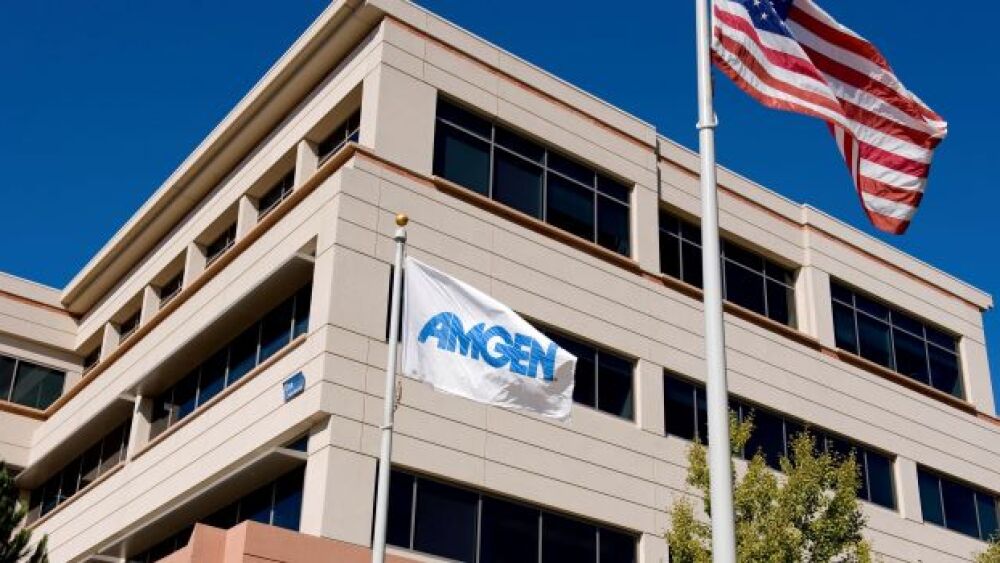Amgen’s Repatha may cause cardiac harm, according to a reassessment of the biologic’s late-stage trial data.
Courtesy of Amgen
A reanalysis of data from the FOURIER trial found a higher risk of cardiovascular death associated with Amgen’s injectable cholesterol therapeutic Repatha (evolocumab), according to a study published last month.
Writing in the open access journal BMJ Open, the researchers noted several “significant inconsistencies and misreporting” between the 2017 New England Journal of Medicine publication of FOURIER’s primary results and its Clinical Study Report (CSR), a technical document containing far more detailed information about the trial.
In the CSR, 36 Repatha-treated patients died due to myocardial infarction. Meanwhile, the 2017 paper lists only 25 such cases. Moreover, there were 31 cardiac failure deaths identified in the CSR, nearly twice as many as that in the NEJM report.
In contrast, there were three fewer placebo deaths in the CSR than in the 2017 publication.
“The 2017 NEJM publication reported that evolocumab decreased non-fatal myocardial infarctions and strokes,” the researchers wrote, while also pointing out that re-adjudication of the FOURIER data flagged more cardiovascular deaths than what had previously been published.
“It would be surprising for myocardial infarctions and strokes, which account for most cardiovascular deaths, to decrease while cardiovascular mortality was increased by evolocumab,” the researchers added.
Data from the FOURIER trial formed the basis of Repatha’s regulatory approval, which was granted in 2015.
The biologic works by binding to PCKS9, a protein that helps degrade receptors for low-density lipoprotein cholesterol on the surface of liver cells. By inhibiting the action of PCKS9, Repatha promotes the clearance of LDL cholesterol from the blood.
According to the authors of the BMJ article, accurate assessment of Repatha is particularly important “because evolocumab is the first in a new drug class.” The inconsistencies they found suggest “that complete restoration of all clinical outcomes from the FOURIER trial is required.”
In an email to BioSpace, an Amgen spokesperson said the company disagrees with the analysis of Repatha as published in BMJ Open, pointing to “limitations to the ... analysis resulting in an incomplete assessment of the FOURIER data and a flawed conclusion.”
The company stands by the event adjudication process employed in FOURIER and asserts that this process is in line with the Standardized Data Collection for Cardiovascular Trials Initiative established by the Food and Drug Administration.
The adjudication process also drew guidance from other regulatory agencies and is consistent with that in other cardiovascular outcomes trials, Amgen pointed out.
“We stand behind the robust body of evidence supporting the safety and efficacy profile of Repatha, which has been used in 1.7 million patients worldwide since 2015 and has been studied in more than 51,000 patients through clinical studies,” the spokesperson wrote.
Amgen Takes Repatha Patent Fight to Supreme Court
Last week, Amgen filed its briefing document to the Supreme Court, laying out its arguments to revive patents protecting Repatha, as well as to block the sale of Praluent (alirocumab), a similar PCSK9 inhibitor developed by powerhouse partners Sanofi and Regeneron.
Amgen first filed a patent infringement lawsuit against Sanofi and Regeneron in 2014, when the partners filed for FDA approval for Praluent. Two juries ruled in Amgen’s favor, finding the company’s patents to be valid and enforceable.
These decisions were eventually overturned by the U.S. Court of Appeals for the Federal Circuit, arguing that the patents were invalid as they failed to disclose sufficient information that would allow anyone knowledgeable in the field to recreate the antibodies without undue experimentation.
Amgen appealed to the Supreme Court. A decision is expected by midyear, according to a Reuters report.






